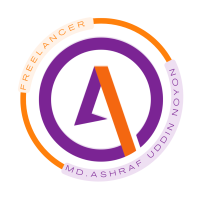Table of Contents
- Introduction
- Exploring the Different Pricing Options for WordPress vs Elementor
- What Are the Benefits of Using WordPress vs Elementor?
- How to Choose the Right Platform for Your Website: WordPress vs Elementor
- Exploring the Different Features of WordPress vs Elementor
- Comparing the Pros and Cons of WordPress vs Elementor
- Conclusion
“WordPress and Elementor: The Perfect Combination for Building Your Website!”
Introduction
WordPress and Elementor are two of the most popular website building platforms available today. Both offer a wide range of features and tools to help you create a professional website. WordPress is a content management system (CMS) that allows you to create and manage content on your website. Elementor is a page builder that allows you to create and customize pages on your website without having to write any code. Both platforms have their own advantages and disadvantages, so it’s important to consider which one is best for your needs. In this article, we’ll compare WordPress vs Elementor to help you decide which one is right for you.
Exploring the Different Pricing Options for WordPress vs. Elementor
WordPress and Elementor are two of the most popular website-building platforms available today. Both offer a range of features and pricing options, making them suitable for a variety of users. In this article, we will explore the different pricing options for WordPress and Elementor, and discuss which one may be the best choice for your needs.
WordPress is a free and open-source content management system (CMS) that is used to create websites and blogs. It is the most popular CMS in the world, powering more than 35% of all websites. WordPress offers a range of pricing options, from free to premium. The free version of WordPress is suitable for basic websites and blogs and includes features such as themes, plugins, and basic customization options. For more advanced features, such as e-commerce, SEO, and security, users can upgrade to a premium plan. Premium plans start at $4 per month and offer a range of features and support.
Elementor is a drag-and-drop page builder that is used to create websites and blogs. It is a popular choice for users who want to create professional-looking websites without having to learn to code. Elementor offers a range of pricing options, from free to premium. The free version of Elementor is suitable for basic websites and blogs and includes features such as themes, plugins, and basic customization options. For more advanced features, such as e-commerce, SEO, and security, users can upgrade to a premium plan. Premium plans start at $49 per year and offer a range of features and support.
When choosing between WordPress and Elementor, it is important to consider your needs and budget. WordPress is a great choice for users who are looking for a free and easy-to-use platform, while Elementor is a great choice for users who want more advanced features and customization options. Ultimately, the best choice for you will depend on your needs and budget.
What Are the Benefits of Using WordPress vs. Elementor? __WPAICG_IMAGE__
WordPress and Elementor are two popular content management systems (CMS) used to create websites. Both offer a range of features and benefits, but they differ in terms of their approach and capabilities.
WordPress is an open-source CMS that is free to use and highly customizable. It is a powerful platform that allows users to create websites with a wide range of features and functionality. WordPress is easy to use and has a large library of plugins and themes that can be used to customize the look and feel of a website. Additionally, WordPress is highly secure and regularly updated, making it a reliable choice for website creation.
Elementor is a drag-and-drop page builder that is used to create websites with WordPress. It is a powerful tool that allows users to create custom designs without the need for coding. Elementor is easy to use and offers a range of features, such as pre-built templates, custom widgets, and responsive design. Additionally, Elementor is highly customizable and can be used to create complex websites with ease.
When deciding between WordPress and Elementor, it is important to consider the features and benefits of each. WordPress is a powerful platform that offers a wide range of features and customization options. Elementor is a powerful page builder that allows users to create custom designs without the need for coding. Both offer a range of benefits, but the choice ultimately depends on the user’s needs and preferences.
How to Choose the Right Platform for Your Website: WordPress vs. Elementor
When it comes to creating a website, there are many different platforms to choose from. Two of the most popular options are WordPress and Elementor. Both of these platforms offer a range of features and benefits, so it can be difficult to decide which one is right for your website. To help you make the best decision, here is a comparison of WordPress and Elementor.
WordPress is a content management system (CMS) that is used to create and manage websites. It is a popular choice for many website owners because it is easy to use and offers a wide range of features. WordPress is also open source, meaning that it is free to use and can be customized to meet your specific needs.
Elementor is a page builder that allows you to create and customize web pages without any coding knowledge. It is a great choice for those who want to create a website quickly and easily. Elementor also offers a range of features, such as drag-and-drop page building, custom widgets, and more.
When it comes to choosing the right platform for your website, it is important to consider your needs and goals. WordPress is a great choice for those who want to create a website quickly and easily, while elementary is a great choice for those who want to customize their websites without any coding knowledge. Ultimately, the best platform for your website will depend on your specific needs and goals.
Exploring the Different Features of WordPress vs. Elementor
WordPress and Elementor are two of the most popular website building platforms available today. Both offer a wide range of features and capabilities, making them ideal for creating a variety of websites. In this article, we will explore the different features of WordPress and Elementor to help you decide which platform is best for your needs.
WordPress is an open-source content management system (CMS) that is used to create websites and blogs. It is highly customizable and offers a wide range of features, including a powerful plugin system, a variety of themes, and a wide selection of widgets. WordPress also offers a wide range of tools for SEO optimization, making it an ideal choice for those looking to improve their website’s visibility.
Elementor is a drag-and-drop page builder that allows users to create stunning websites without any coding knowledge. It offers a wide range of features, including a library of pre-made templates, a wide selection of widgets, and a powerful drag-and-drop editor. Elementor also offers a wide range of tools for SEO optimization, making it an ideal choice for those looking to improve their website’s visibility.
When it comes to features, both WordPress and Elementor offer a wide range of options. WordPress offers a powerful plugin system, a variety of themes, and a wide selection of widgets. Elementor offers a library of pre-made templates, a wide selection of widgets, and a powerful drag-and-drop editor. Both platforms also offer a wide range of tools for SEO optimization.
When it comes to ease of use, WordPress is generally considered to be easier to use than Elementor. WordPress is designed to be user-friendly and offers a wide range of tutorials and support resources. Elementor, on the other hand, is designed to be more complex and requires a bit more technical knowledge.
In conclusion, both WordPress and Elementor offer a wide range of features and capabilities, making them ideal for creating a variety of websites. When it comes to ease of use, WordPress is generally considered to be easier to use than Elementor. Ultimately, the choice between the two platforms will depend on your individual needs and preferences.
Comparing the Pros and Cons of WordPress vs. Elementor
WordPress and Elementor are two popular website-building platforms that offer users a variety of features and capabilities. Both platforms have their own unique advantages and disadvantages, and it is important to understand the differences between them before making a decision.
WordPress is a content management system (CMS) that allows users to create and manage websites. It is an open-source platform, meaning that it is free to use and can be customized to fit the user’s needs. WordPress is easy to use and has a wide range of plugins and themes available, making it a great choice for those who are new to website building. However, WordPress can be slow and difficult to customize, and it is not as user-friendly as some other platforms.
Elementor is a website builder that allows users to create and customize websites without any coding knowledge. It is a drag-and-drop platform, meaning that users can easily move elements around and customize their website with ease. Elementor also offers a wide range of templates and plugins, making it a great choice for those who want to create a professional-looking website quickly. However, Elementor is not free and can be expensive for those who need more advanced features.
In conclusion, both WordPress and Elementor have their own unique advantages and disadvantages. WordPress is free and easy to use, but it can be slow and difficult to customize. Elementor is a great choice for those who want to create a professional-looking website quickly, but it is not free and can be expensive for those who need more advanced features. Ultimately, the best platform for you will depend on your needs and budget.
Conclusion
WordPress and Elementor are both great tools for creating websites, but they each have their own strengths and weaknesses. WordPress is a great choice for those who want a powerful and versatile platform that can be used to create a wide variety of websites. Elementor is a great choice for those who want a more user-friendly platform that is easy to use and customize. Ultimately, the choice between WordPress and Elementor will depend on the user’s needs and preferences.






